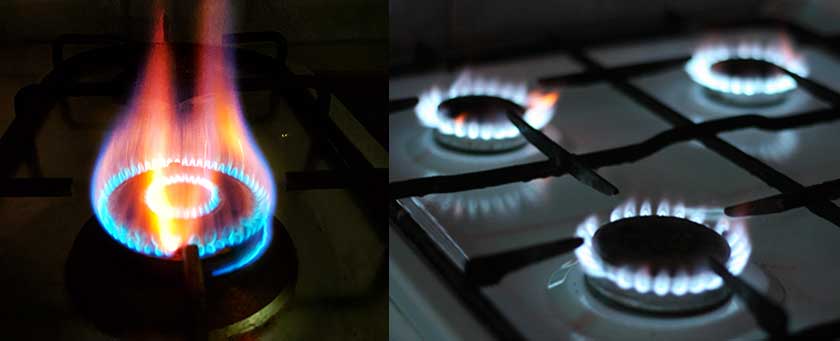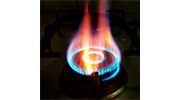LP Gas - Propane Safety
Propane is safe - it's the operator that can be dangerous

Photo credits to for left photo to Pruthvi Sagar A R & right photo to Mykola Makhlai both artists on Unsplash
If I asked you what's the most dangerous aspect of RV's what would your answer be? Low hanging cabinets, awning arms, getting out of bed perhaps; my guess is a resounding 'propane"! While the others are obstacles I have had the pleasure to experience, propane is actually my least worry. Why? Propane is a safe gas when used by competent operators. Lack of maintenance and an apathetic attitude toward improper use and disregard of safety rules are the culprits of propane fires.
I could write multiple paragraphs about propane safety but my guess is they wouldn't be read. My experience has shown that far too many people would rather discuss Covid than propane. Fair enough, Covid doesn't explode, spread maybe but not explode. According to the CRVA, between August 2020 and September 2021 an approximate 103,623 recalls were made for a variety of 2017 - 2021 manufacturer propane related issues. With the mass explosion, pardon the pun, of RV manufacturing and even more so since the start of the Covid 19 pandemic, I kindly ask that you at least review the propane safety tips we have to offer you. It just may save your RV and more importantly your life.
LP Gas (Liquid Propane Gas) Safety Tips
- You should have a full propane inspection completed at a minimum of every 2 years - call us
- not only will it help you sleep at night but some insurance policies allow a discount for such - Check the age of your smoke and gas detectors and replace if needed - why would anyone compromise their safety for $20
- as a rule, smoke (carbon monoxide)detectors should be replaced within 10 years (there should be an expiry date on the back of it)
- as a rule, LP Gas detectors should be replaced 5 - 7 years. an expiry date is often on the front of them
- yes we replace those too - never attempt to repair any part of your RV's propane system
- I am well aware of many amateur websites where folks say go ahead and do it yourself; don't - call us
- your insurance company won't accept the reason of your being informed that you could do it yourself
- the TSSA also is willing to hand out stiff penalties for unlicensed repairs - Check the age of your propane tanks - they should be no more than 9 years old
- Some exchange suppliers will accept 10 year old but please make it a point to change yours prior to that
if your tanks are less than the max age but pitted please replace them
- make sure that your tanks are secure - Visually inspect the rubber hoses from your regulator to the trailer - if they show any signs of cracking they must be
replaced
- call us with your questions and for such repairs - If your regulator is intermittently reading incorrectly please call us
- Propane is an odourless gas and is mixed with Ethyl mercaptan (also known as Ethanethiol) resulting in that rotten egg smell
on occasion you may smell it outside during excessively hot days, however,
- if you smell LP Gas inside your RV and/or your ... stop, make sure your stove/oven valves are turned off, your furnace is off... leave your RV and call us - if you are uncertain for any reason please call us, we will answer your questions and provide the proper service if required
- NEVER use your stove/oven for heat! - yes, there have been too many deaths as a result of this practice
- When cooking turn the overhang fan on - if it doesn't work at least crack the window open a crack to release fumes
- Do NOT use screens over the furnace exhaust ports - they look nice but are not legal!
Portable Fire Pits
Portable fire pits have become the rage! As summers face the threat of 'fire bans' many RV'ers have turned to the safety and ease of the 'Portable Propane Fire Pit'. For those of us that prefer the nostalgic atmosphere of sitting around a wood burning campfire it's a 'culture shock'. However, there are obvious advantages. You can simply turn off the fuel supply at the end of the evening without having to douse the fire. You can set them at a safe distance to your RV over the grass, but we do suggest setting up on a concrete patio stone or stones. Any debris outside of the 'portable fire pit' is less likely to catch fire as they sit higher off the ground. Many offer grilling tops which is an attractive option. One advantage that I like is - no smoke in my eyes.
When it comes to your safety we take RV propane inspections seriously. We use a propane inspection form that's
known as highly respected by the TSSA and insurance companies due to its thoroughness. We did not create the form as it was developed
over many years by the highly respected Canadian Outdoor Leisure propane technician Tim Chapeski. We were provided this form to assist
us in ensuring that our propane inspections are thorough in every aspect. We're are talking about your safety after all.
We've barely scratched the surface on this topic so if you have any questions or need an inspection and/or repairs please reach put
to us; We want you to be safe.
For inspection requests you may go to our Help Me! page and complete one of the Inspection Request Forms. For information only simply click on the "Information Only" form button below.
Ask us about our propane repair and inspection services. We have old school values - we will not take shortcuts. We've built our reputation on it.

